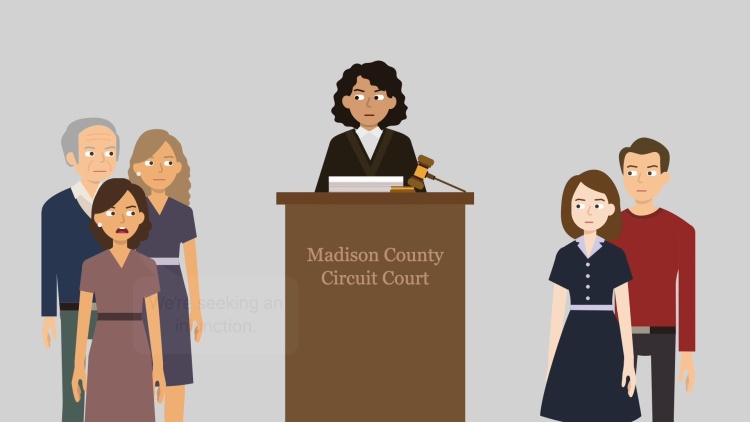Triplett v. Beuckman
Illinois Appellate Court
40 Ill. App. 3d 379, 352 N.E.2d 458 (1976)

- Written by Josh Lee, JD
Facts
Susan Triplett (plaintiff), as the executor of the estate of Francis Wortman, sold an island belonging to the estate to Fred and Joan Beuckman (defendants). The estate retained a 10-foot strip of land around the circumference of the island, and also retained the lake surrounding the island and the adjoining land. The Beuckmans received an easement over the 10-foot strip of land to access a 60-foot bridge across the lake, and also received the right to the recreational use of the lake jointly with the lake’s owners. The bridge across the lake fell into disrepair. The Beuckmans unsuccessfully sought Triplett’s aid in repairing the bridge, which subsequently gave way. The Beuckmans removed the bridge and replaced it with a causeway to the island. Triplett and Wortman’s relatives (plaintiffs) sued for an injunction requiring the Beuckmans to remove the causeway and build a new bridge. At trial, Triplett introduced evidence that, prior to the causeway, Wortman’s relatives could boat and water-ski around the island by passing under the bridge. The causeway allegedly restricted recreational use of the lake and could decrease its property value. However, Fred testified that when the bridge was removed, there was no water beneath the bridge, such that water-skiing was not possible. An engineer and two iron workers testified that they had advised the Beuckmans that the bridge could not be repaired. Both Triplett and Fred testified that they thought the Beuckmans owned the bridge. The trial court held that the causeway was a reasonable and practical solution to an unusual problem, and that any injury to the plaintiffs was because of the plaintiffs’ refusal to cooperate with the Beuckmans in repairing the bridge. The trial court denied the injunction. The plaintiffs appealed.
Rule of Law
Issue
Holding and Reasoning (Jones, J.)
Dissent (Eberspacher, J.)
What to do next…
Here's why 911,000 law students have relied on our case briefs:
- Written by law professors and practitioners, not other law students. 47,100 briefs, keyed to 997 casebooks. Top-notch customer support.
- The right amount of information, includes the facts, issues, rule of law, holding and reasoning, and any concurrences and dissents.
- Access in your classes, works on your mobile and tablet. Massive library of related video lessons and high quality multiple-choice questions.
- Easy to use, uniform format for every case brief. Written in plain English, not in legalese. Our briefs summarize and simplify; they don’t just repeat the court’s language.





